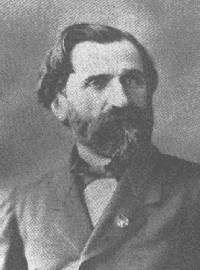Sound reproduction brings new life to old classics
 VERDI: "Falstaff." Giuseppe Valdengo, baritone, Sir John Falstaff; Nerva Nelli, soprano, Mistress Alice Ford; Nan Marriman, mezzo-soprano, Mistress Meg Page; Cleo Elmo, Mezzo-soprano, Mistress Quickly, etc. Robert Shaw Chorale; NBC symphony Orchestra; Arturo Toscanini, conductor. RCA Red Seal/BMG 72372; ADD Mono; 2 CDs; libretto.
VERDI: "Falstaff." Giuseppe Valdengo, baritone, Sir John Falstaff; Nerva Nelli, soprano, Mistress Alice Ford; Nan Marriman, mezzo-soprano, Mistress Meg Page; Cleo Elmo, Mezzo-soprano, Mistress Quickly, etc. Robert Shaw Chorale; NBC symphony Orchestra; Arturo Toscanini, conductor. RCA Red Seal/BMG 72372; ADD Mono; 2 CDs; libretto. Our basic interest in this recording is the sound reproduction. The recording was made from two radio broadcasts of the opera, April 1 and 8, 1950. It proved to be a stunner. Considering the artists involved - principal soloists, chorus, orchestra and conductor - I suppose nobody really was surprised.
Was there a downside to the recording? Yes. It was made in that torture chamber NBC called Studio 8-H, an auditorium famous for the poor quality of sound reproduction it offered in the making of recordings. The 1950 recording left much to be desired as far as sound was concerned. That was then, and this is now, and the remastering of the original recording has made a world of difference. This is good sound even by today`s high engineering standards.
If you already have this recording on compact discs (it was first released in that format a decade ago), should you buy this new one? Absolutely. No doubt about that whatsoever. This is a greatly improved product.
If you don`t have "Falstaff" in your music library and are thinking about adding it, should you chose this one?
Before I answer that, let me make clear that I have never been an idolater of Toscanini. I agree with part of a statement in the notes that accompany this disc that state "Toscanini surely was a master," but I don`t agree he was "perhaps the most towering Maestro of the 20th century."
Even so, I greatly admire this "Falstaff," and I would put it with the three or four recordings of the opera that make up the very best available. Yes, you`ll find newer, better sound on later recordings. Fine engineering or not, this recording is half a century old and, as good as it is - and it is good - it simply can`t match the best of today`s sound.
But I`m going to suggest you buy it anyway. If you buy a more recent recording, buy this one, also. Actually, you can`t afford not to. The recording is specially priced. You get two CDs for the price of one. If you love opera, if you particularly love "Falstaff," and if Toscanini is, always has been, always will be your conductor, this recording is one you simply cannot afford to pass up.
SCHUMANN: Fantasie, Op. 17; Kinderszenen. SCHUBERT: Wanderer-Fantasie. Sir Clifford Curzon, piano. Decca Legendary Performances 466 498.
The recordings of Curzon playing Schubert were made in 1949; the Schumann was made in 1954. They have always been highly regarded by many as exemplars of the way this music best should be played. The notes with the CD tell us, "They remained in the Decca Catalogue into the 1980s in spite of their mono origins." And then it is probable that they lost out to other older works that had the added distinction of having been made in stereo.
How many great recordings have bitten the dust simply because they were originally recorded in mono and not stereo - because, of course, stereo had not yet made its appearance on the recording scene? We have lost some treasures, but with the continuing advancements being made in technology, record houses are returning to their vaults and once again offering some of these treasures, now smartly dressed in very good sound - even though they are of mono origin.
I certainly applaud this decision. There has been a tendency ever since the advent of stereophonic recordings to pay so much attention to sound quality that the quality of the readings of the works themselves has sometimes taken second place.
As for these recordings by Curzon, it is a most happy development that they are back in the catalog.
Baker`s Biographical Dictionary of Musicians says of the English pianist, whose dates were 1907-1982:
"Curzon was a scholarly virtuoso who applied his formidable technique with a careful regard of the music."
You will discover this for yourself when you listen to this splendid disc.
(c) Copley News Service
advertisement

Related Articles
Author: King Durkee
Archives
Nathan Milstein first among equals
Musical mastery is in the details
Half century of classics sprout from modest seed
Hundred years warble: sounds of a century
A Vivaldi album for all seasons
Westminster lives on
15-work collection a tribute to compassion
Remastered recordings music to the ears
Grand band music
The elusive quality of superstars
Vault yields some forgotten gems
Remembering Rampal
Argerich is always awesome
Mahler - words and music
Liszt`s music at its best
More Articles







